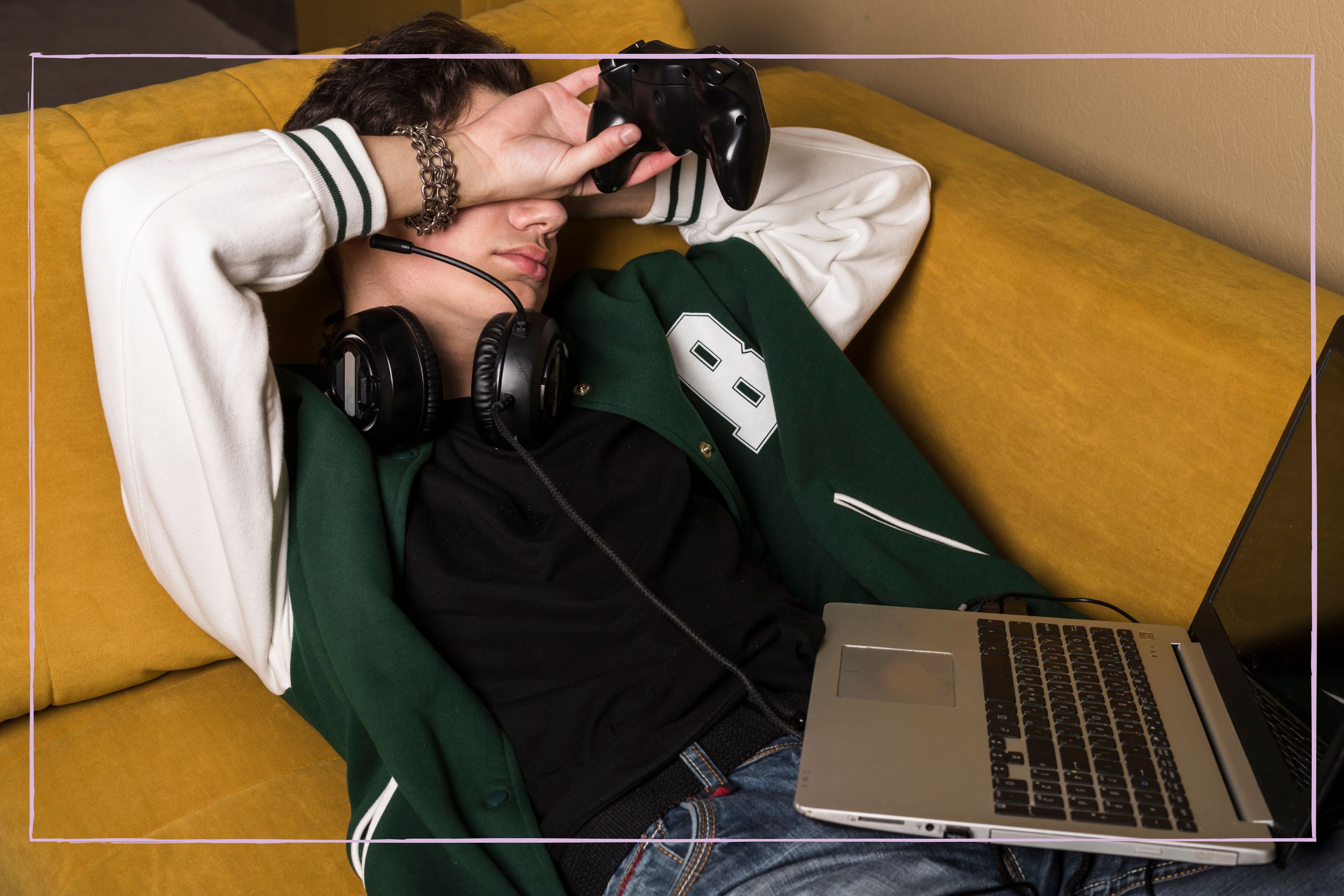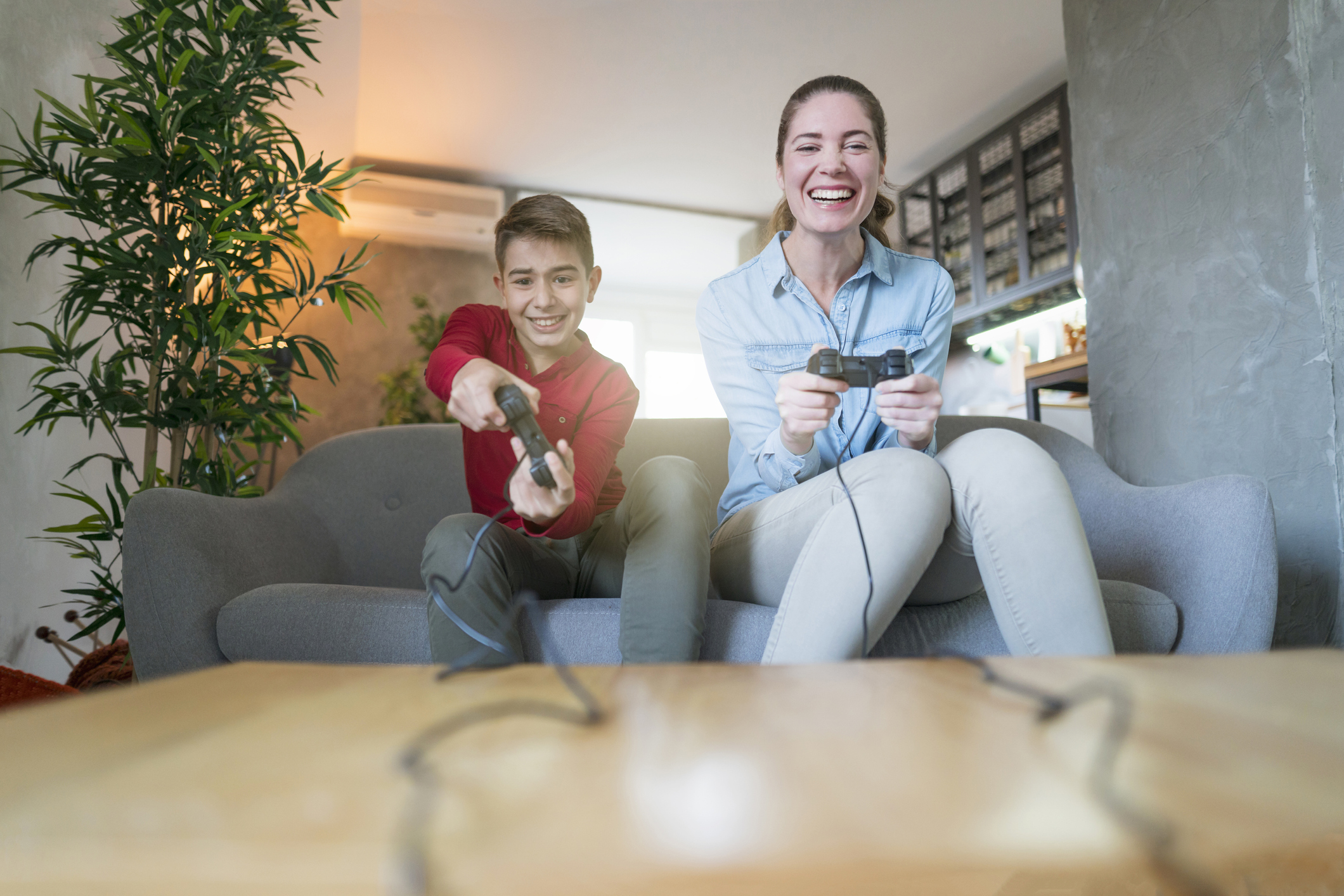
If your teenager is obsessed with gaming and is struggling to get a decent night's sleep then these six expert tips will help them develop healthy sleep habits.
Controlling screen time can be a real struggle when you have kids, so don't feel like a failure if you've tried these TikTok parenting trends around gaming but still can't get your teenager out of bed in the morning and concerned about how much sleep teenagers need.
Children who play video games are more likely to experience difficulty falling asleep than those who avoid them, according to a study published in the Journal of Adolescent health. This, combined with insight from the Sleep Foundation, which highlights the negative impact prolonged sleep loss can have on a teen’s emotional development, means parents of game-loving teens may quickly be concerned about their child’s sleep quality.
It's not that screens are the enemy, it can just be tricky knowing how to reduce screen time, especially when it feels like your teenager is tuning you out.
However, Dr. Hana Patel, a resident sleep expert at Time4Sleep, has shared her six tips for helping adolescent games get better quality sleep as she urges parents to encourage healthy sleep habits...
1. Enforce regular, active breaks
Dr. Patel says: “You’ve probably heard this one before, but for a very good reason; giving yourself a break from the screen is vital to keeping yourself healthy. Ideally, you want to be enforcing breaks from gaming at least once an hour. This will ensure your child’s brain can rest and doesn’t become too overstimulated before bed.”
“If you can, try to encourage active breaks such as kicking a football around or going for a walk. These activities will help your child become less sedentary and will make sure they are tired enough to sleep at a reasonable time. A standing desk might be another option to consider if you think your child would benefit from a more active lifestyle.”
2. Make sure consoles are shut off at least an hour before bedtime
“Ideally you want to leave a full hour between gaming and sleep, but even half an hour will make a difference" advises Dr. Patel. "This is crucial as your brain needs time away from strong light sources before it can begin its rest cycle. Aim to switch consoles off at a consistent time every night so that kids understand that they can’t push this particular boundary and can sleep when bedtime comes around.”
3. Confine consoles to communal areas
“On a similar note, try to avoid allowing video games in the bedroom if you can, as this can cause the brain to associate sleeping areas with pleasure rather than rest," Dr. Patel warns. "This means that every time your child enters their bedroom their brain primes itself for stimulating activities, making it harder for them to fall asleep. Instead, keep computers and other devices in communal areas only, such as living or office spaces.”

4. Restrict access to caffeinated drinks or sugary snacks
Dr. Patel says: “Too much caffeine or sugar can have a significant impact on your sleep quality. While it is common for teens to use energy drinks to keep them alert while gaming, this can have detrimental effects on their health.”
“A good rule of thumb is to avoid children’s access to overly sugary or caffeine-heavy products after noon, or latest by mid-afternoon. One way to do this might be to use sugar or caffeine-free alternatives that still fill that sweet craving. Allowing your child time to digest these compounds will give them enough time to fully relax before their head hits the pillow.”
5. Show kids how much time they are losing to gaming
“Depending on the age of your child, and the quantity of video games they play, you may be able to get them to see your point of view" Dr. Patel advises.
“Consider adding up the hours they spend playing video games and show them exactly how much time they could be spending on other activities they may enjoy. If you explain what they could be missing out on, you might find they are willing to make a compromise.”
6. Consider help from a specialist
“For some kids, video game addiction can have a serious impact on their general wellbeing and attitude towards life. The World Health Organisation has recently classified gaming disorder as a mental health condition for the first time, meaning more and more health providers are starting to provide the necessary treatment.”
Dr. Patel explains: “If your child struggles to control how often they play video games, games up to fourteen hours a day or more, or becomes violent or avoidant as a result of their gaming habits, it may be helpful to seek specialist therapy.”
In other family news, “I won't let you” – child psychotherapist Dr Becky reveals why these four words are “better” than empty threats and here's one thing you might want to avoid doing with your kids as it can cause them anxiety, according to a psychoanalyst.







